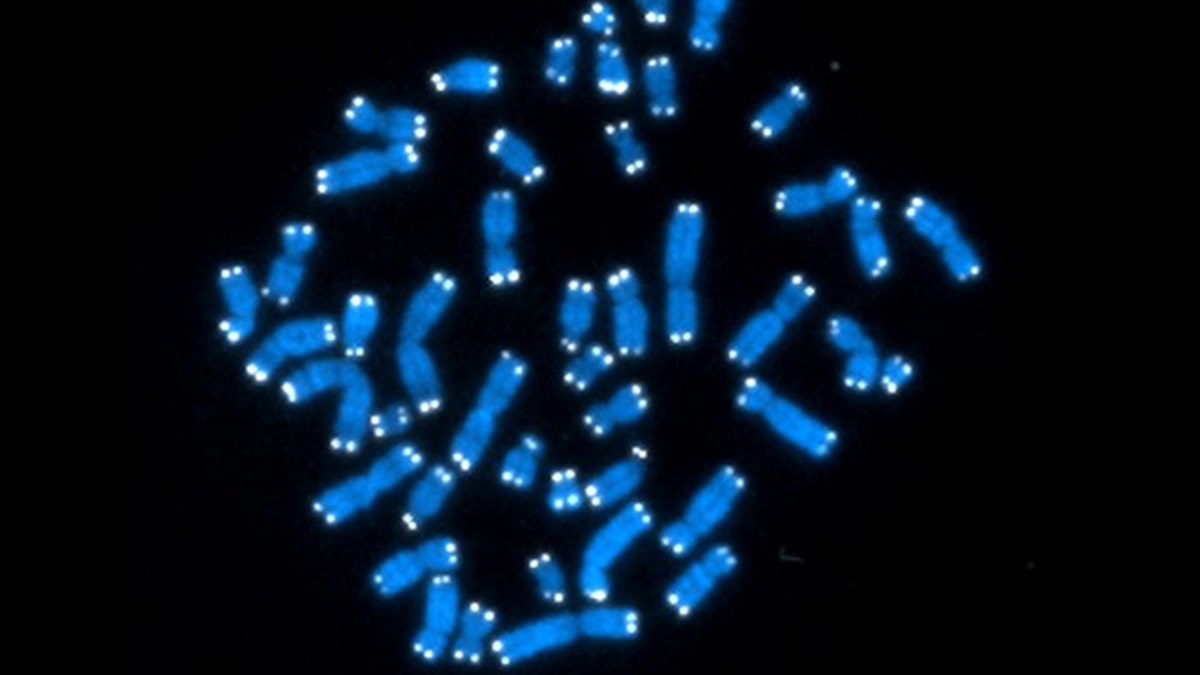
Sept. 5, 2012: The 46 human chromosomes, where DNA resides and does its work. Each chromosome contains genes, but genes comprise only 2 percent of DNA. (AP Photo/National Cancer Institute)
CHICAGO – The National Cancer Institute in July will start enrolling patients in a clinical trial seeking to match the underlying genetic defect driving a person's tumor with one or more of 20 approved or experimental drugs targeting that gene.
The announcement, made at the American Society for Clinical Oncology meeting on Monday, is meant to use approved or experimental drugs to develop insights that will ultimately enable doctors to prescribe drugs based on the molecular cause of the cancer, rather than the organ in which it was originally discovered.
Overall, trial investigators plan to sequence the DNA of about 3,000 patients nationwide during the full course of the trial, known as NCI-Match. Of those, they plant to enroll about 1,000 patients in the various drug treatment arms in the trial.
"What we're trying to do is sequence their tumor for various cancer drivers," said Dr. Barbara Conley, associate director of the NCI’s Cancer Diagnosis Program. "If they have that driver, they will be able to get the drug that was chosen to attack that driver."
Patients will be treated as long as their tumor shrinks or remains stable.
Drugs being used in NCI-MATCH include both approved and experimental agents that are being contributed by a number of companies.
Initial agents in the trial will include Pfizer Inc's lung cancer drug crizotinib, sold as Xalkori; Boehringer Ingelheim's afatinib, sold as Gilotrif, Novartis' ceritinib, sold as Zykadia, and two investigational drugs: AstraZeneca's AZD9291, a drug being tested in non-small cell lung cancer, and Verastem's VS-6063, also known as defactinib, a drug being tested in mesothelioma.
Enrollment in NCI-MATCH will be available across the country through the 2,400 sites participating in the National Clinical Trials Network.
